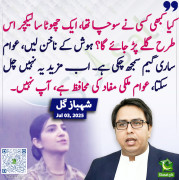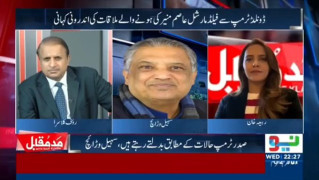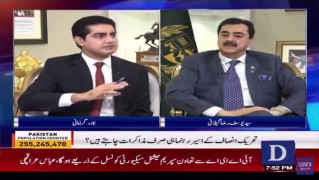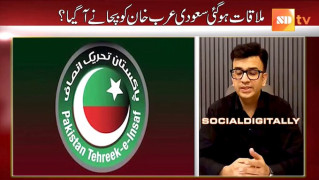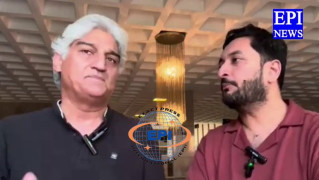MANNO
Councller (250+ posts)
As the recently concluded 47-nation nuclear security summit brought a higher degree of legitimacy to its nuclear programmes, Pakistan has a strong case to request a civilian nuclear agreement akin to the US-India civilian nuclear deal initiated in 2005.
Pakistans successful counter-insurgency operations in Swat, South Waziristan and throughout the country has set a major paradigm shift in US-Pakistan relations-from mistrust to achieving long-term strategic partnership between US and Pakistan.
This wind of sea-change was noticed in the nuclear security summit in Washington where US President Barack Obama allayed the apprehensions of the critics by saying that he trusts the countrys ability to protect its nuclear arsenals.
By doing so, Islamabad feels the pleasant sense of belongingness by considering itself as an acceptable responsible nuclear weapon state in the international community.
The US-Pakistan alliance has a long history. With its past paradoxical features, the US-Pakistan relationship generally remains difficult to steer.
Ever since its inception in 1947, Pakistan and the United States established cordial diplomatic relations with each other.
The US agreement to provide economic and military assistance to Pakistan further strengthened relations between the two nations.
However, the US suspension of military assistance during the 1965 Indo-Pakistan war generated a widespread feeling in Pakistan that the United States was not a reliable ally. Gradually, relations improved, and arms sales were renewed in 1975.
The United States cut off economic assistance to Pakistan due to concerns about Pakistans nuclear programme under the Symington Amendment (1979) and Pressler Amendment (1990). After the 9/11 terrorist attacks on the World Trade Centre, Pakistan decided to align with the US in the US-led war on terror.
Another example of ambivalence in relationships can be observed from the fact that US designated Pakistan a major non-Nato ally against terrorism.
It has rewarded India for its strategic partnership by approving a civilian nuclear deal to India. Pakistan protested against the deal, demanding that Washington offer a similar accord to Islamabad as well.
Nevertheless, Pakistans solid war performance in the tribal belt, has led to the present robust alliance between both the countries and without Islamabads active cooperation, the US would have found it impossible to wage its war on terror in Waziristan.
Today US-Pakistan relations are based on shared values, perception and a convergence of interests and concerns. The US can address Pakistans economic, developmental and insecurity issues by acknowledging the country as an accepted nuclear power.
Although China has agreed to build two new civilian nuclear reactors of 650 mega-watts at Chashma so as to help cope with the crippling energy crisis, it is US assistance that would help Pakistan maintain conventional parity with its arch rival, India.
Pakistans energy needs are pressing, and Washington must transform its relations with Islamabad with the same energy and creativity as it did with New Delhi.
Thanks to the diplomatic skills of Prime Minister Yousuf Raza Gilani, President Obamas statesmanship and successes of Pakistan Army in fighting out Taliban insurgents in the tribal areas, we are nearing a civilian nuclear deal which could lift Pakistan with an increase in the size of the economy to $1 trillion, per-capita income to $4,000, elimination of poverty and finally raising the literacy rate to 100 per cent.
Military leadership and democratic forces have worked hard to the well-being of the country. Ten years from now when the electricity supply situation in Pakistans households, industry and farms is significantly better, we will be thanking all of them.
http://www.dawn.com/wps/wcm/connect...editor/time-for-a-uspakistan-nuclear-deal-750:fing02::fing02:
Pakistans successful counter-insurgency operations in Swat, South Waziristan and throughout the country has set a major paradigm shift in US-Pakistan relations-from mistrust to achieving long-term strategic partnership between US and Pakistan.
This wind of sea-change was noticed in the nuclear security summit in Washington where US President Barack Obama allayed the apprehensions of the critics by saying that he trusts the countrys ability to protect its nuclear arsenals.
By doing so, Islamabad feels the pleasant sense of belongingness by considering itself as an acceptable responsible nuclear weapon state in the international community.
The US-Pakistan alliance has a long history. With its past paradoxical features, the US-Pakistan relationship generally remains difficult to steer.
Ever since its inception in 1947, Pakistan and the United States established cordial diplomatic relations with each other.
The US agreement to provide economic and military assistance to Pakistan further strengthened relations between the two nations.
However, the US suspension of military assistance during the 1965 Indo-Pakistan war generated a widespread feeling in Pakistan that the United States was not a reliable ally. Gradually, relations improved, and arms sales were renewed in 1975.
The United States cut off economic assistance to Pakistan due to concerns about Pakistans nuclear programme under the Symington Amendment (1979) and Pressler Amendment (1990). After the 9/11 terrorist attacks on the World Trade Centre, Pakistan decided to align with the US in the US-led war on terror.
Another example of ambivalence in relationships can be observed from the fact that US designated Pakistan a major non-Nato ally against terrorism.
It has rewarded India for its strategic partnership by approving a civilian nuclear deal to India. Pakistan protested against the deal, demanding that Washington offer a similar accord to Islamabad as well.
Nevertheless, Pakistans solid war performance in the tribal belt, has led to the present robust alliance between both the countries and without Islamabads active cooperation, the US would have found it impossible to wage its war on terror in Waziristan.
Today US-Pakistan relations are based on shared values, perception and a convergence of interests and concerns. The US can address Pakistans economic, developmental and insecurity issues by acknowledging the country as an accepted nuclear power.
Although China has agreed to build two new civilian nuclear reactors of 650 mega-watts at Chashma so as to help cope with the crippling energy crisis, it is US assistance that would help Pakistan maintain conventional parity with its arch rival, India.
Pakistans energy needs are pressing, and Washington must transform its relations with Islamabad with the same energy and creativity as it did with New Delhi.
Thanks to the diplomatic skills of Prime Minister Yousuf Raza Gilani, President Obamas statesmanship and successes of Pakistan Army in fighting out Taliban insurgents in the tribal areas, we are nearing a civilian nuclear deal which could lift Pakistan with an increase in the size of the economy to $1 trillion, per-capita income to $4,000, elimination of poverty and finally raising the literacy rate to 100 per cent.
Military leadership and democratic forces have worked hard to the well-being of the country. Ten years from now when the electricity supply situation in Pakistans households, industry and farms is significantly better, we will be thanking all of them.
http://www.dawn.com/wps/wcm/connect...editor/time-for-a-uspakistan-nuclear-deal-750:fing02::fing02:


